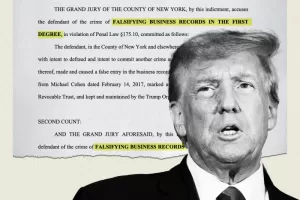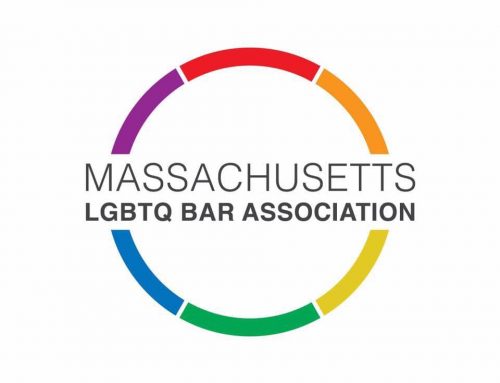 There is a lot of news in the air around indictments, namely of a former President. As that saga has been unfolding I’ve been able to answer to some questions regarding the court system, as inevitably, court coverage results in a lot of jargon. As there is an order to the processes and procedures in courts, so too is there a highly specific form or language to describe its various components.
There is a lot of news in the air around indictments, namely of a former President. As that saga has been unfolding I’ve been able to answer to some questions regarding the court system, as inevitably, court coverage results in a lot of jargon. As there is an order to the processes and procedures in courts, so too is there a highly specific form or language to describe its various components.
To start at the beginning, how does a alleged crime become a matter before the court? In Massachusetts state courts, the bulk of the criminal matters begin as Summonses. A Summons is a court order to appear. Individuals are summonsed to court in cases where the incident did not result in arrest (if one is arrested and able to post bail at the police station, one would be summonsed to appear the following business day). Summonses arrive in the mail, and usually are for a Clerk Magistrate’s hearing (read more here). If the Clerk Magistrate (CM) finds that there is “probable cause” that a crime was committed, they will issue a Complaint. Defendants now receive a second Summons to appear, this time for an Arraignment in front of a judge. Individuals who have been arrested, whether or not they post bail set at the police station, go directly to the Arraignment and are not entitled to a CM hearing, as “probable cause” is presumed to exist upon arrest… though that is often debatable.
Initial Arraignments take place in the nearest local District court, or the Boston Municipal Court. Most cases proceed in those courts to completion, including jury trials. However, the most serious offenses (Murder, Rape, Drug Trafficking, etc.) can not be tried in the District courts and instead must be heard the Superior Court. These cases have no “final jurisdiction” in the District/Municipal courts and thus must be “bound over” to the Superior Court. This can happen in two different ways. One is for the prosecutor to hold a Probable Cause (for Indictment) hearing, where they must prove to a specific legal standard that the Defendant committed the alleged offense(s). During Probable Cause hearings, the Defendant is entitled to cross examine, introduce witnesses, obtain evidence and testify. As such, prosecutors often chose a different route to get their cases to Superior Court.
Indictments are decisions to charge made by a Grand Jury (GJ). Unlike trial juries, which sit in public, grand jury proceedings are not open to the public. The process is equally one sided when applied to the accused, who is not allowed to testify and introduce evidence in their defense. Prosecutors love grand juries because they are the stars of the show, unchallenged by pesky defense attorneys. A grand jury considers evidence presented by the prosecutor, and if convinced that it is sufficient to charge the Defendant, issues an Indictment, a document that formally charges the person with the crime. Once indicted, cases proceed in the Superior Court. Even if the defendant has already been arraigned in the District Court, he will face a second Arraignment in Superior Court, where bail and conditions of release will be revisited. Superior Court cases subject criminal defendants to much longer sentences in state prison.
As you may gather, there is often a good amount of overlap when a case proceeding in the lower courts is being prepared by prosecutors for the GJ. While the situation is generally unenviable for the defendant, it does present latitude to negotiate highly favorable plea deals. If a prosecutor demonstrates that they will actually “put up” and present the case to a GJ, it is often advisable to discuss plea deals that keep the case in the lower court. This can occur when a defendant makes a “Binding Plea with a Charge Concession,” which means that the they have pled guilty to a reduced charge. To illustrate, one charged with Trafficking Class A Drugs, a charge which has no final jurisdiction in the District/Municipal courts, could make such a plea to the reduced charge of Distribution A or Possession with Intent to Distribute. While this is not always the way to go, as many of these serious cases should be tried to a Jury, the certainty of a District/Municipal court disposition, as opposed to the risk of a long sentence in Superior Court, is often enough to convince defendants to make favorable deals.
So there you have it. Please contact me should you need legal representation in MA courts.



Leave A Comment